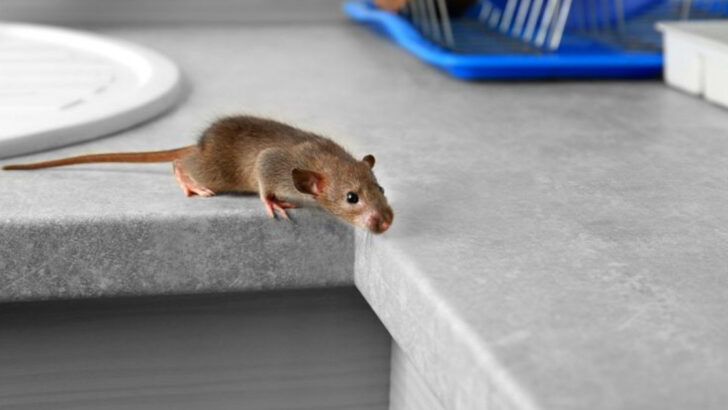If you’ve ever dealt with rats, you know they’re not exactly welcome houseguests. Traps and poison aren’t the only tools in the shed, though—sometimes it’s the simple things, like smell, that can make a big difference. Rats rely heavily on their sense of smell, and some scents are so unpleasant to them that they’ll avoid them altogether.
The trick is knowing which smells actually work and how to use them effectively. From common pantry items to essential oils you might already have at home, some of the best rat repellents are surprisingly easy to find. If you’re looking for a low-effort, chemical-free way to keep rodents at bay, these scents might just become your new go-to.
Peppermint Oil
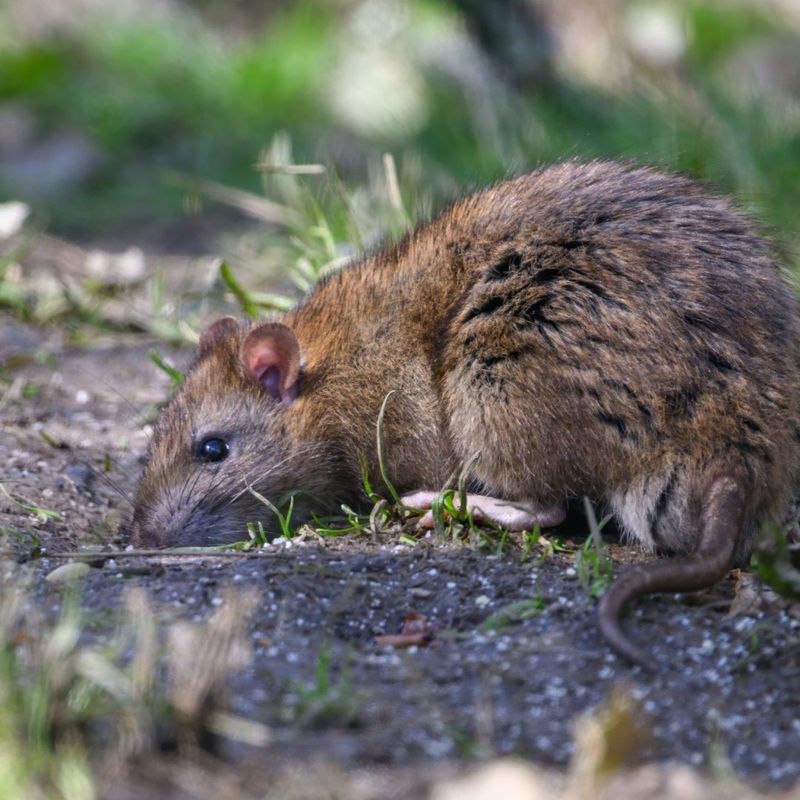
Peppermint oil is a natural remedy for repelling rats. Its strong, minty aroma is overwhelming for these rodents, making it an effective deterrent. Placing cotton balls soaked in peppermint oil around entry points can help keep rats away. In addition to its repelling properties, peppermint oil offers a refreshing scent for your space. For best results, replace the cotton balls every few days to maintain the fragrance. This method is easy to implement and provides a non-toxic solution that is safe for families and pets. Embrace peppermint oil as a natural way to deter rats.
Camphor

The evocative aroma of camphor is not just for nostalgic memories; it’s a potent rat deterrent. Camphor, often used in traditional medicine, releases a strong odor that rats find unbearable. This odor can permeate the air and create an inhospitable environment for these rodents.
Placing camphor blocks in dark corners or near potential entry points can discourage rats from entering. Its efficacy is enhanced in enclosed spaces. Ensure the area is well-ventilated to avoid overwhelming the human senses.
Interestingly, camphor has been used for centuries in various cultures for its pest-repelling properties.
Eucalyptus Oil
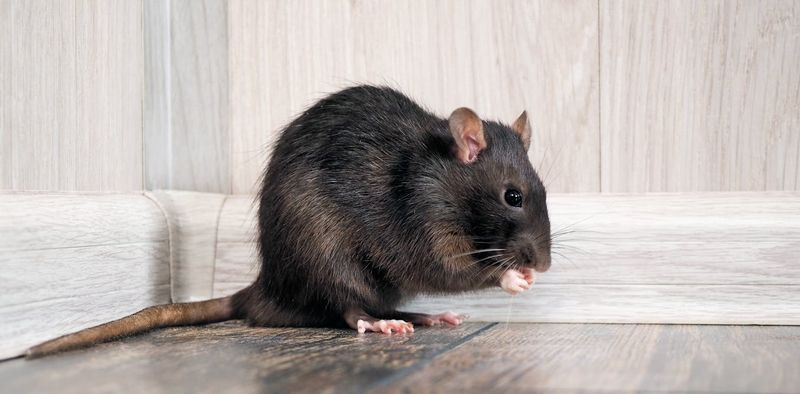
Eucalyptus oil, with its potent aroma, is another effective rat deterrent. The strong scent of eucalyptus overpowers a rat’s acute sense of smell, driving them away. Applying a few drops of eucalyptus oil on cotton balls and placing them in rat-prone areas can be beneficial. Regular replacement ensures the aroma remains potent. Eucalyptus oil is not only effective but also offers a fresh, invigorating scent for your home. Its natural properties make it a safe alternative to chemical repellents, providing a pest-free environment without harmful side effects. Try eucalyptus oil to keep rats at bay.
Cinnamon

Cinnamon, with its warm and spicy fragrance, isn’t just a culinary delight; it’s also a natural rat repellent. The intense scent irritates rats’ sensitive nasal passages, making your home less appealing.
Sprinkle ground cinnamon in areas where you’ve noticed rodent activity. Alternatively, cinnamon essential oil can be applied to cotton balls and placed strategically.
Besides warding off unwanted guests, cinnamon may add a pleasant aroma to your living space. Its dual purpose makes it a versatile addition to your home, offering both aromatic pleasure and rodent deterrence.
Cloves

Cloves possess a pungent, spicy fragrance that rats find intolerable. These dried flower buds can be strategically placed in areas where rats are likely to enter. The strong scent of cloves acts as a natural barrier, deterring rats from crossing into treated zones. To enhance their effectiveness, consider using clove oil on cotton balls for more concentrated aroma. Cloves are a readily available and cost-effective solution, making them a popular choice for homeowners seeking natural pest control methods. Incorporating cloves into your rat prevention strategy offers a simple yet powerful way to protect your home.
Mothballs

Though traditionally used to protect fabrics, mothballs are also effective against rodents. Their strong, chemical scent is offensive to rats, driving them away from treated areas.
To use mothballs as a repellent, place them in areas less frequented by humans, such as attics or basements. It’s essential to handle them carefully, as their fumes can be harmful if inhaled excessively.
While practical for repelling rats, mothballs should be used with caution. They are best suited for spaces where human exposure is limited.
Ammonia

Ammonia’s strong, pungent odor mimics the scent of predator urine, which instinctively frightens rats. Using ammonia as a repellent involves diluting it with water and placing the solution in cups around your home. The smell creates an environment that feels unsafe for rats, prompting them to leave the area. However, caution is advised when handling ammonia due to its potent fumes, which can be harmful if inhaled. Ensure the area is well-ventilated and keep ammonia out of reach of children and pets. Ammonia offers an aggressive yet effective approach to rat deterrence.
Coffee Grounds
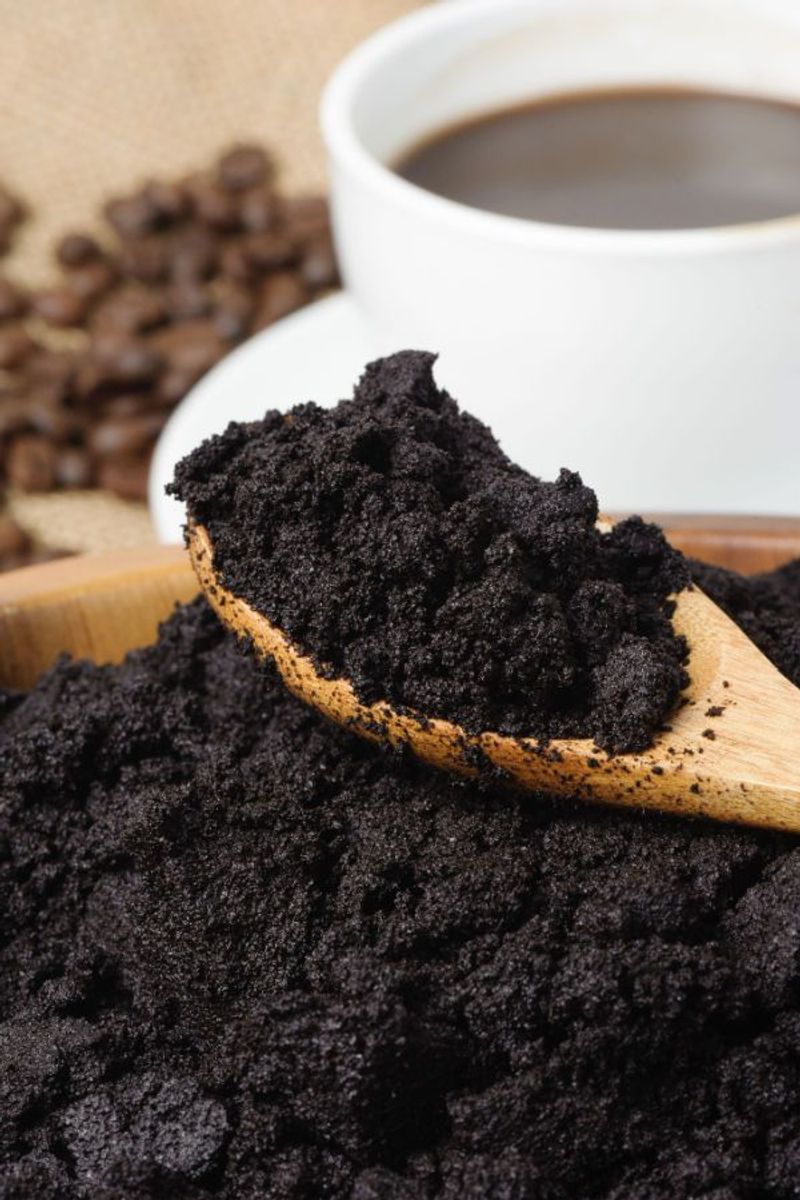
A morning ritual for many, coffee isn’t just energizing for humans. Used coffee grounds can act as a natural rat deterrent. The strong, lingering smell is unappealing to rodents, making it an effective barrier.
Scatter used coffee grounds around garden beds or near entry points to deter rats. This eco-friendly method also enriches your garden soil, promoting healthier plant growth.
By recycling coffee waste, you not only protect your home from rats but also contribute to a sustainable environment. It’s a win-win situation for both gardeners and homeowners.
Citronella Oil
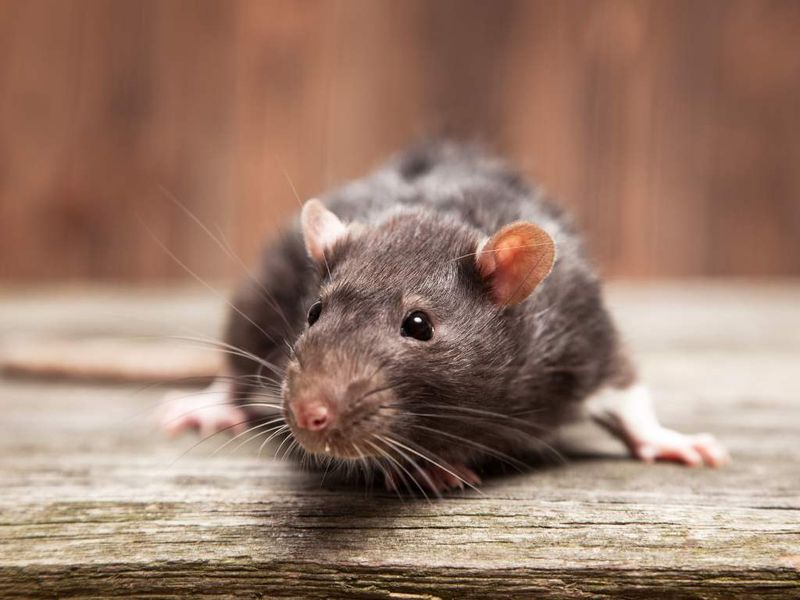
Citronella oil is widely known for its insect-repelling qualities, but it also effectively deters rats. The sharp scent of citronella overwhelms a rat’s sensitive olfactory system, making it an excellent natural repellent. To use, apply a few drops of citronella oil onto cotton balls and place them near rat entry points. Refresh the cotton balls regularly to maintain the scent’s potency. Citronella oil is a versatile option, providing a natural and pleasant fragrance while keeping pests at bay. This eco-friendly solution is a great addition to any pest control toolkit, ensuring a rat-free environment.
Vinegar
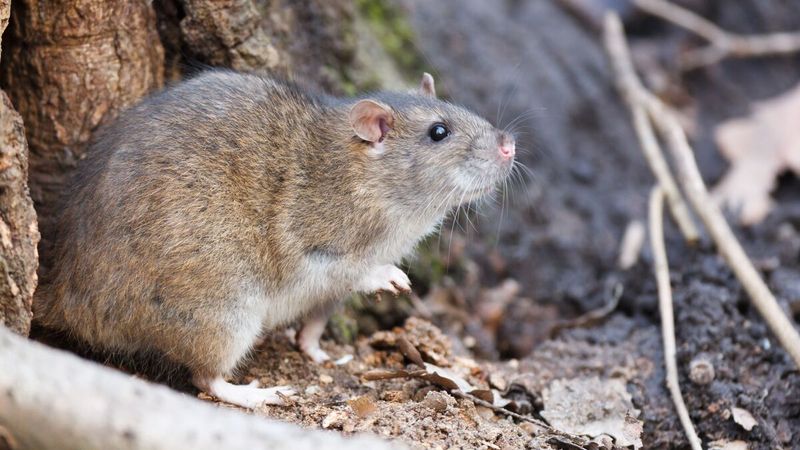
Vinegar’s acidic odor is unappealing to rats, making it a simple yet effective repellent. Its strong smell disrupts a rat’s comfort, encouraging them to seek refuge elsewhere. Soaking cotton balls in vinegar and placing them in areas frequented by rats can deter their presence. To maintain effectiveness, regularly replenish the vinegar-soaked cotton balls. Aside from its repelling properties, vinegar is a versatile household staple with multiple uses. This cost-effective solution offers an easy and safe way to manage rat presence without resorting to harsh chemicals. Utilize vinegar to create a less inviting environment for rats.
Black Pepper

Black pepper, with its intense, spicy scent, can act as a natural rat deterrent. Its pungent aroma irritates a rat’s nasal passages, driving them away from treated areas. Sprinkling black pepper along baseboards or near entry points can help keep rats from venturing further into your home. Reapplying black pepper regularly ensures its effectiveness as the scent fades. This common kitchen ingredient provides a simple, non-toxic method for managing rat presence. Not only is black pepper easily accessible, but it also complements other natural deterrents, offering a multi-layered approach to pest control.
Cayenne Pepper

Cayenne pepper, renowned for its fiery heat, also serves as a formidable rat repellent. Its strong, spicy aroma is intolerable to rats, driving them away from treated areas. Sprinkling cayenne pepper around potential entry points or along baseboards can deter these pests effectively. Regular application is necessary to maintain the scent’s intensity. Cayenne pepper is a natural, non-toxic option that fits well into a holistic pest control strategy. By incorporating cayenne pepper into your rat prevention efforts, you can enjoy the peace of mind that comes with a pest-free home without relying on chemicals.
Garlic
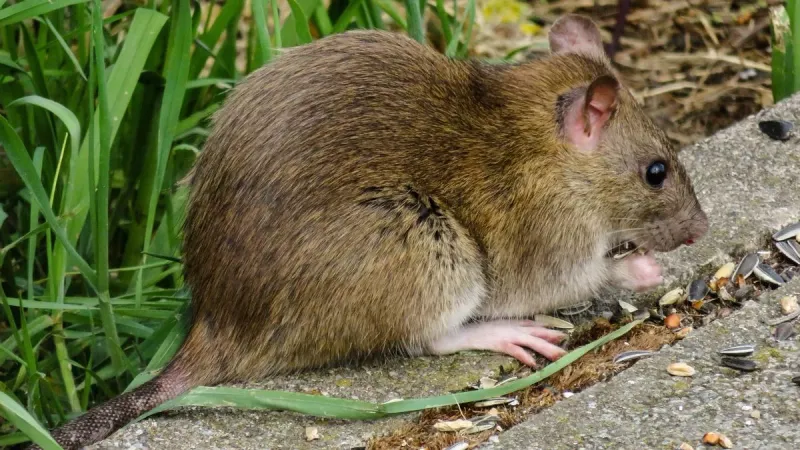
Garlic’s potent aroma makes it an excellent natural repellent for rats. Its strong scent disrupts their olfactory senses, making areas treated with garlic unappealing. Crushed garlic cloves can be placed in strategic locations to keep rats at bay. For a more potent effect, garlic oil can be used to enhance the scent’s strength. Regular replacement ensures the effectiveness of this method. Garlic is not only a staple in the kitchen but also a valuable tool in natural pest management. Its accessibility and ease of use make it a preferred choice for those seeking chemical-free solutions.
Onion
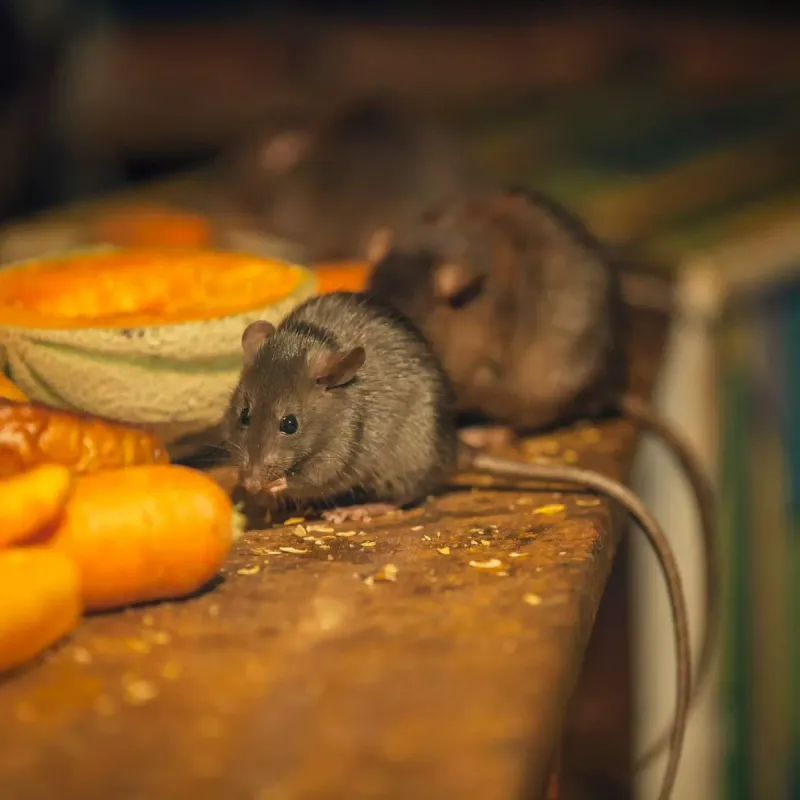
Onions, with their sharp, pungent scent, can effectively deter rats from invading your space. The strong aroma creates an environment that rats find intolerable, encouraging them to vacate the area. Placing sliced onions in strategic locations around your home can help keep these pests at bay. To maintain the scent’s potency, replace the onions regularly. While onions offer a natural repellent option, they should be used with caution around pets, as they can be harmful if ingested. Incorporating onions into your pest control strategy provides a straightforward, non-toxic method for managing rat presence.
Bay Leaves

Bay leaves, often used in cooking, also serve as a natural rat deterrent. The leaves emit a subtle yet potent aroma that rats find unappealing. Placing bay leaves in cupboards, drawers, or other rat-prone areas can discourage these pests from settling in. The natural oils in bay leaves are believed to irritate a rat’s sensory system, making them an effective repellent. Regular replacement of the leaves is recommended to ensure continuous protection. Bay leaves provide a simple and eco-friendly option for managing rat infestations, making them a popular choice for maintaining a pest-free environment.
Lavender Oil
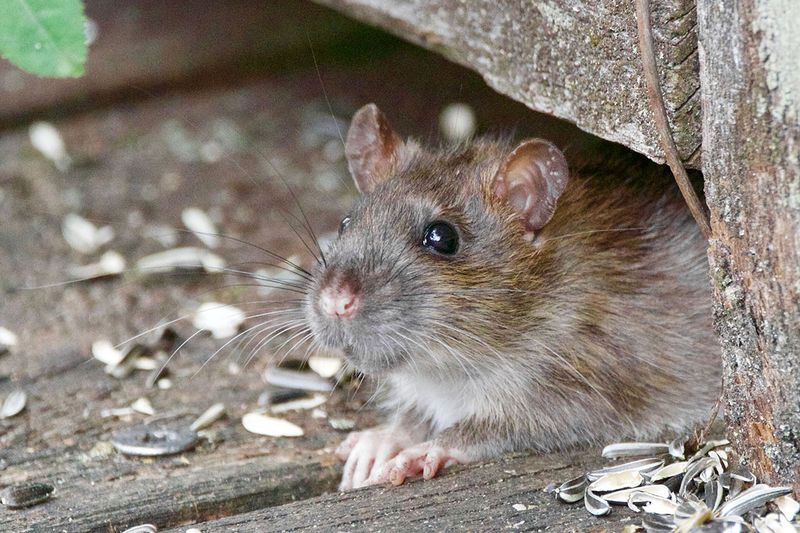
Lavender oil is commonly known for its soothing properties, but it also acts as a rat deterrent. The strong floral scent overwhelms a rat’s keen sense of smell, making treated areas less attractive. Applying lavender oil to cotton balls and placing them in entryways or other vulnerable spots can discourage rats from entering. Regular replacement ensures the aroma remains effective. Lavender oil offers a dual benefit: repelling pests and providing a pleasant fragrance for your home. Its natural properties make it a safe choice for those seeking environmentally friendly pest control solutions.
Thyme

Thyme, an herb with a robust, earthy aroma, can act as a natural rat repellent. The scent of thyme is offensive to rats, disrupting their sense of comfort and deterring their presence. Sprinkling dried thyme leaves or using thyme oil in strategic locations can help keep rats away. Regularly refreshing the herb or oil ensures continued effectiveness. Thyme offers a simple, non-toxic alternative to chemical repellents, making it a valuable addition to a holistic pest management strategy. Incorporating thyme into your efforts can help maintain a rat-free home while enhancing your kitchen’s ambiance.
Lemon

Lemons, with their fresh, citrusy scent, can deter rats from entering your home. The strong aroma of lemon disrupts a rat’s acute sense of smell, making treated areas less appealing. Slicing lemons and placing them near entry points or rat hotspots can help keep these pests at bay. Regular replacement is necessary to maintain the scent’s potency. Lemons provide a natural, non-toxic alternative to harsher chemicals, making them an ideal choice for eco-conscious homeowners. Besides repelling pests, lemons also add a refreshing scent to your living space, enhancing the overall atmosphere.
Tobacco

Tobacco’s strong and distinct smell is intolerable to rats, making it an effective natural repellent. The scent of tobacco interferes with a rat’s sensory system, driving them away from treated areas. Sprinkling loose tobacco leaves in rat-prone locations can help deter these pests. It’s important to note that tobacco should be used with caution around pets and children due to its potential health risks. Regular replacement ensures the continued effectiveness of this method. Tobacco offers a unique and potent option for those seeking natural pest control solutions, providing peace of mind in managing rat presence.
Rosemary

Rosemary, an aromatic herb, can help deter rats with its strong scent. The aromatic oils in rosemary disrupt a rat’s sense of smell, making treated areas less appealing. Planting rosemary in your garden or using rosemary oil indoors can provide protection against rats. Regularly refreshing the plant or oil ensures continued effectiveness. Rosemary is not only effective but also adds beauty and a pleasant fragrance to your surroundings. Its natural properties make it a safe alternative to chemical repellents, allowing you to maintain a pest-free environment without compromising on aesthetics.
Mint

Mint, much like peppermint, offers a strong, refreshing aroma that rats find unappealing. Planting mint around your home or using mint oil indoors can help keep rats away. The scent of mint acts as a natural deterrent, disrupting a rat’s comfort and discouraging their presence. Regularly replacing mint leaves or refreshing the oil ensures maximum effectiveness. Mint is not only a powerful repellent but also adds a pleasant fragrance to your environment. Its ease of use and natural properties make it a favored choice for homeowners seeking eco-friendly pest control solutions.
Cedarwood Oil

Cedarwood oil, with its rich, woody aroma, is another effective rat deterrent. The scent of cedarwood disrupts a rat’s olfactory senses, making treated areas less appealing. Applying cedarwood oil to cotton balls and placing them in strategic locations around your home can help keep rats at bay. Regular replacement is necessary to maintain the aroma’s potency. Cedarwood oil offers a natural, non-toxic alternative to chemical repellents, making it a safe choice for families and pets. Its distinctive scent not only repels pests but also enhances the ambiance of your living space.
Pine Oil
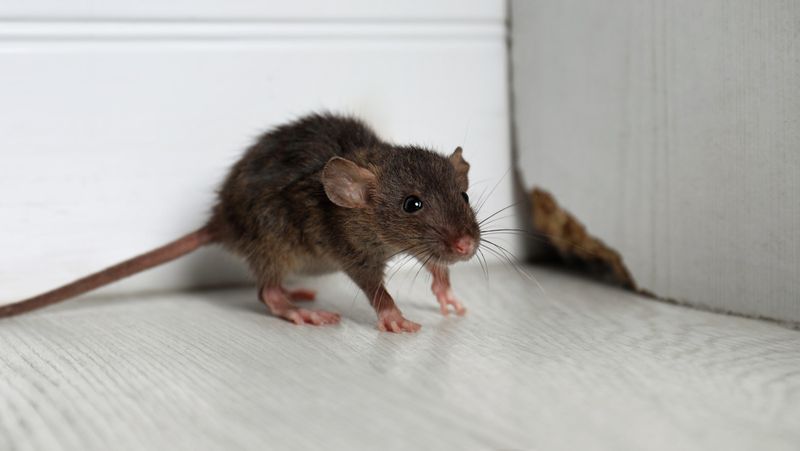
Pine oil, with its crisp, forest-like scent, can effectively deter rats from your home. The strong aroma of pine oil overwhelms a rat’s sensitive nose, making treated areas uninviting. Applying pine oil to cotton balls and placing them near entry points or rat hotspots can discourage these pests. Regular replacement ensures the scent remains potent. Pine oil offers a natural, environmentally friendly option for pest control, fitting well into a holistic strategy. Besides repelling rats, pine oil adds a refreshing fragrance to your home, enhancing the overall atmosphere and providing peace of mind.
Wintergreen Oil
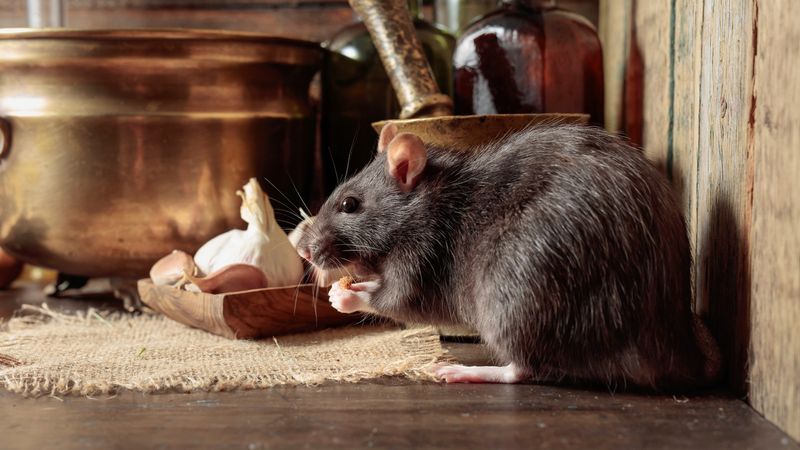
Wintergreen oil, with its intense minty aroma, acts as a formidable rat repellent. The strong scent disrupts a rat’s olfactory system, making it difficult for them to navigate treated areas. Applying wintergreen oil to cotton balls and placing them strategically can help deter these pests. Regular replacement is necessary to maintain the scent’s effectiveness. Wintergreen oil offers a natural and safe alternative to chemical repellents, making it suitable for use around families and pets. Its pleasant fragrance also adds a refreshing touch to your living space, ensuring both pest control and comfort.

